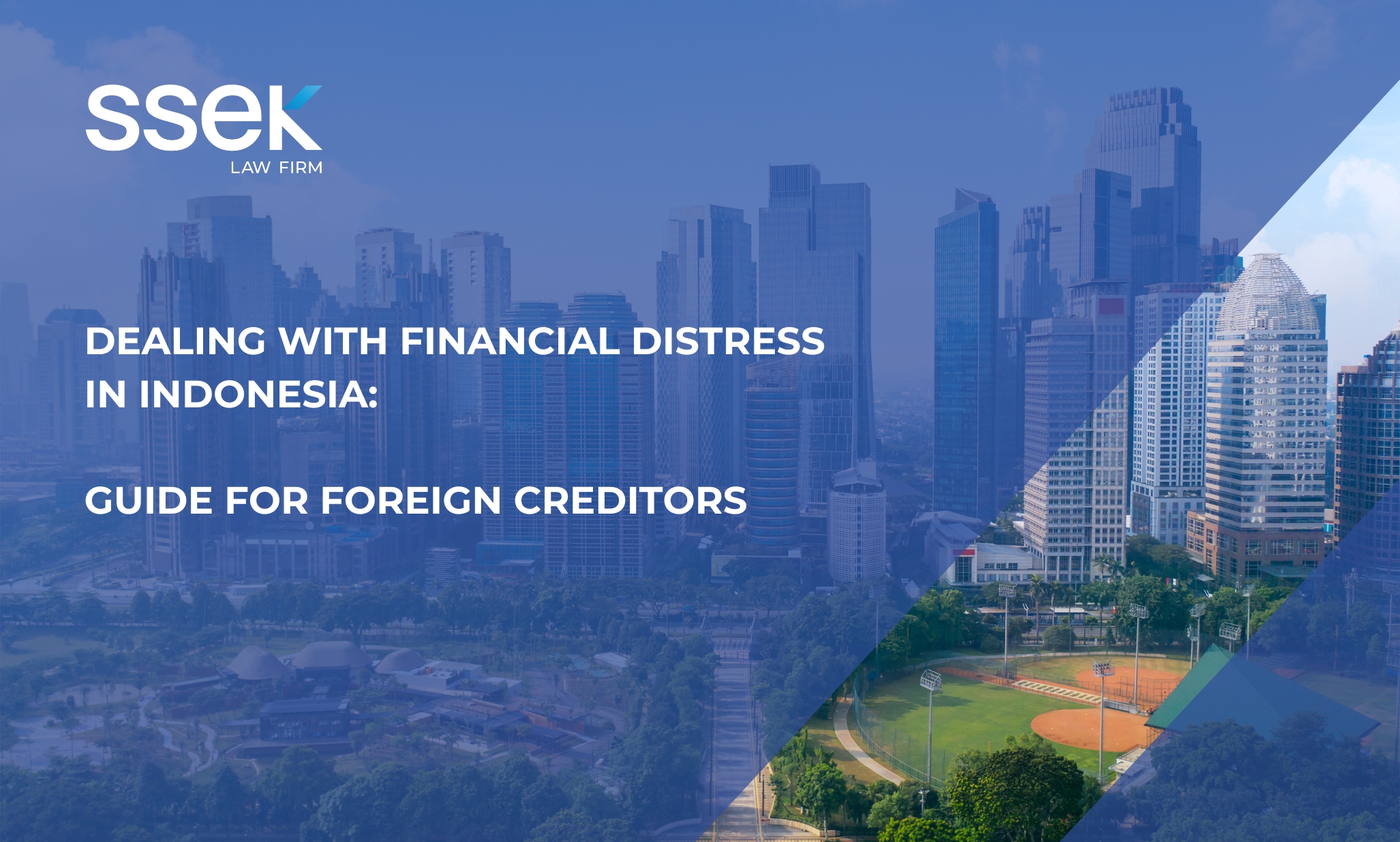

If soil pollution or environmental contamination is already present when the buyer in a real estate transaction in Indonesia becomes the legal owner of the land, it is possible the buyer will be responsible for such pollution or contamination, unless the buyer can prove that it did not cause the pollution or contamination. Upon the transfer of title, the buyer assumes the rights and liability of the land, including any environmental liability.
Article 88 of the Indonesian Environmental Law provides that each person whose action, business and/or activity uses hazardous and toxic material (B3), produces and/or manages B3 waste, and/or causes serious threats to the environment shall be absolutely responsible for the damages suffered and no evidence of breach elements shall be required.
The sanctions under the Environmental Law are divided into three categories.
Administrative liability - the Indonesian Environmental Law provides that a regent/mayor can force a company to restore the environment or appoint a third party to conduct recovery of the environment at the expense of such company, due to environmental pollution and/or damage caused by said company, using the funds of such company (Article 82).
The Environmental Law also provides that a minister/governor/regent/mayor can impose administrative sanctions in the form of (i) a written warning, (ii) government coercive measures, (iii) a suspension of an environmental permit, or (iv) environmental permit revocation.
Other than the above, there are different kinds of administrative liabilities that may apply in this regard depending on the circumstances, such as (i) if the company disposes of wastewater in the water or water source, the company has an obligation to prevent and mitigate water pollution (Article 37 of Government Regulation No 82 of 2001 regarding the Management of Water Quality and Water Pollution Control, or GR 82/2001), and if it fails to do so, the regent/mayor may impose administrative sanctions on the company in the form of written warnings that can lead to the temporary suspension and revocation of its licenses; and (ii) administrative liabilities governed under regional regulations related to the management of water quality and water pollution, as well as the management of underground water. The Environmental Law also provides that any person can file an administrative lawsuit with the State Administrative Court requesting that the authorities revoke the license of a company causing environmental pollution.
Criminal liability - there are different types of circumstances that may lead to the imposition of criminal sanctions, including (i) a formal offence (delik formal) occurs (ie, the company is reported to have caused water quality to fall below its proper level as well as caused damage to the environment); and (ii) the company has negligently caused water quality to fall below its proper level as well as caused damage to the environment, and whether the action has caused injury and/or danger to human health.
Civil liability - the Environmental Law stipulates that any person responsible for a business/activity that pollutes or damages the environment or causes loss to a third party shall be liable to pay compensation and/or take remedial actions.
Under the Environmental Law, any environmental disputes may be settled through courts or outside the courts, provided that the parties to the dispute voluntarily agree to the settlement. Under the Environmental Law, lawsuits through the courts may only be submitted if a party or the parties to the dispute declare that out-of-court settlement has failed. A lawsuit can be submitted by a party that suffered a loss due to such environmental pollution or damage, an environmental NGO or the government.
This first appeared in the Chambers Real Estate 2019 Guide, published by Chambers and Partners. You can find the full chapter here.
This publication is intended for informational purposes only and does not constitute legal advice. Any reliance on the material contained herein is at the user\'s own risk. You should contact a lawyer in your jurisdiction if you require legal advice. All SSEK publications are copyrighted and may not be reproduced without the express written consent of SSEK.









